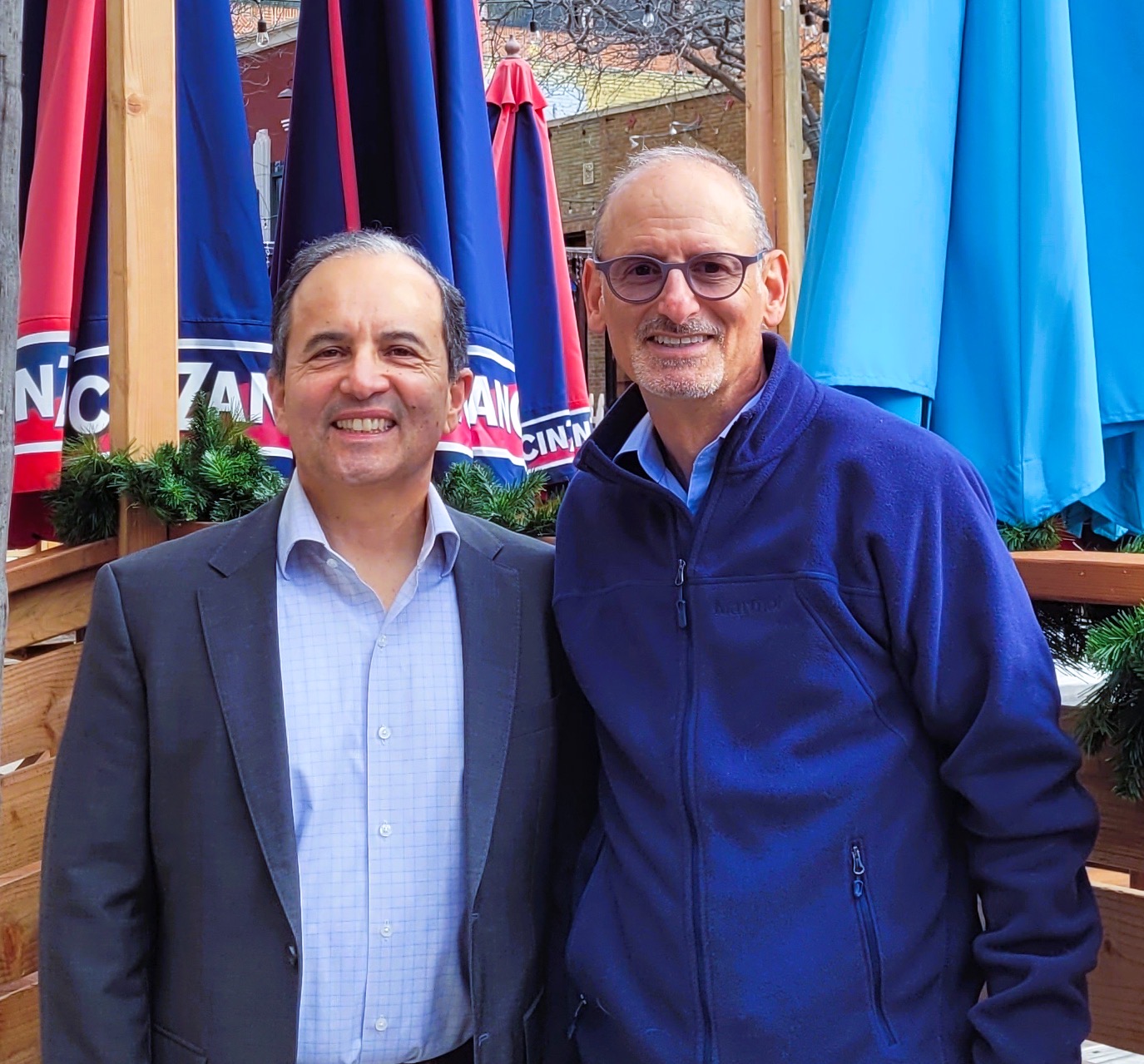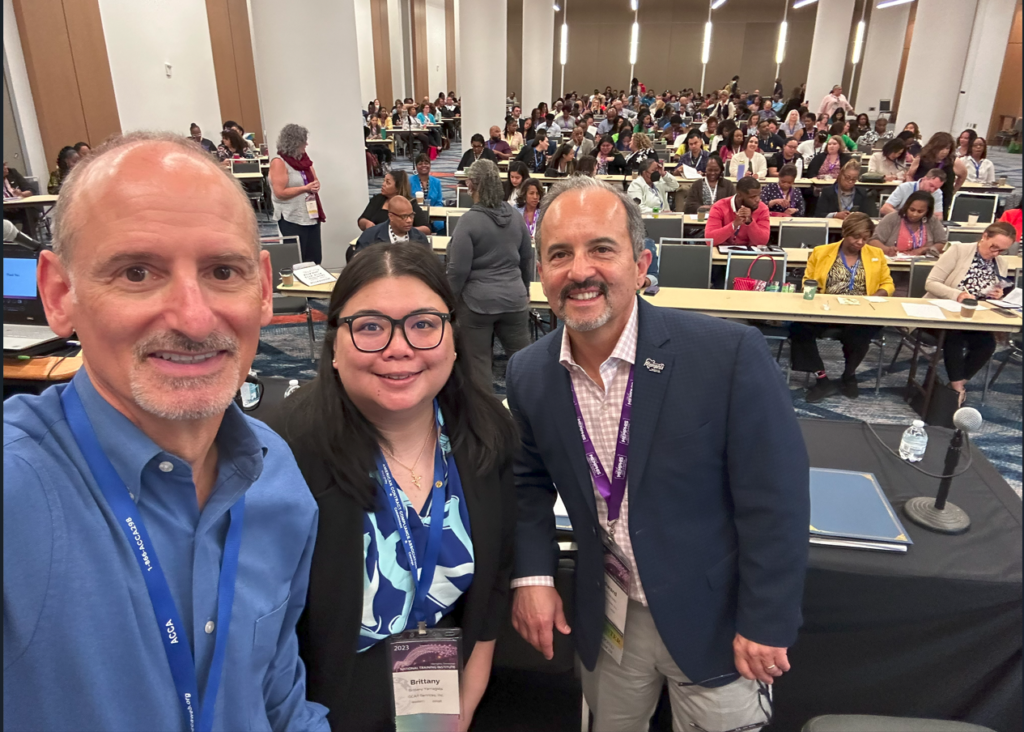✆ 1+ 425-941-6073
✉︎ jmstutz@gmail.com

Ed Salcedo on Inclusive Leadership
By Jonathan Stutz (he/him/his)

My coauthor, Eddie Pate, and I have been incredibly fortunate over the course of our careers to work with many outstanding leaders. These leaders have consistently modeled behavior that have shaped our own inclusive leadership style. A leadership style that inspires and motivates our people and our teams to grow and achieve more than any of us thought possible. It was important to us in writing our book, Daily Practices of Inclusive Leaders, to introduce you to a handful of these inclusive leaders.
We begin the first 5 chapters of our book with a profile on an inclusive leader who exudes the qualities and characteristics of that specific chapter’s focus. The first chapter, “Why Leaders Are Key to the Daily Practice of Inclusion” provided the opportunity for our readers to get to know Edward Salcedo.
Ed is the founder and president of GCAP Services Inc., a Hispanic-owned small-business professional consulting firm headquartered in Costa Mesa, California. GCAP supports the public sector including highway, transit, and energy projects with a focus on compliance, process improvement, and diversity, equity, and inclusion. Since 2022, I’ve worked closely with Ed as GCAP’s Chief Diversity Officer and Advisor. In working alongside Ed, I’ve found him to be a leader who cares deeply about his employees, his customers, his community, and every individual with whom he does business. Ed’s heart, courage, and wisdom as a leader have enabled him and his employees to run a successful small business for 26 years and counting. Ed’s inclusive leadership style is based upon 5 core principles that affects his thinking and behavior daily, it’s what makes Ed a role model of inclusive leadership.
Here’s Ed’s five core principles:
- Listen. Be humble. Gain input from everyone.
“Keep an open mind; listen without judgment. To listen is so powerful. Be silent. Then when you speak, tell them what you are hearing. People want to be respected. Their voices are just as important as anyone else’s.”
A few years back, Ed’s company, GCAP Services, changed its employee performance evaluations to include an employee self-assessment and manager assessment. The leadership wanted to learn from their people what they enjoyed doing, where they wanted to grow, and how they wanted their managers to support them. They created a safe space for people to voice their ideas, opinions, and perspectives. Ed’s thinking was that a small company like GCAP may not be able to fulfill every employee need, but it can help people gain experience in the areas they are interested in and help them on the path to where they want to go. The results have been extremely positive. Employees were spot-on in their self-assessments, making the whole feedback process much smoother.
“They knew where they needed to improve and what they needed to grow. It was so much better for them to tell us. We’re listening to them explain how they can be better, instead of us just telling them what we want.”
- Share information with employees.
“It’s important for people to understand what I do as president of GCAP. I want to give people the knowledge to learn, to understand, to think about, and to plan what we’re doing as a company.”
Ed believes GCAP has benefited from its culture of cascading information to everyone, which then enables information to cascade up to leadership. That way, learning happens at all levels of the organization.
- Share information with business partners.
“If you are always calling and asking your business partners for something, after a while, they’re not going to take your calls. But if you’re calling to give them something that they are interested in, it creates an environment where people want to hear from you. You establish a great relationship, and they are happy to share if you need any help.”
When Ed and his staff obtain information from a social or business event, they go out of their way to share it. They’ll intentionally share business leads and opportunities with people in GCAP’s network: business partners, consultants, and even competitors. And they never have any expectation of getting something back in return. Ed believes it’s one reason GCAP gets so many new opportunities, “A partner will send information over saying, “I think this is closer to what you do than us” because they trust that GCAP will do the same for them.”
- Give people a chance.
“Give them the tools, be there for them, and get out of the way. I’m not quick to correct unless someone’s factually wrong. I’m a macromanager not a micromanager.”
Early in Ed’s career, Tony DeLuca, the former CEO of the $1.5 billion IT Group Inc., served as his manager and mentor. Tony put his trust in Ed, giving him a chance to lead a new subsidiary, even though Ed didn’t have much experience in those days. Tony treated people with respect and gave them opportunities to prove themselves. And now Ed is paying it forward. For Ed, giving people a chance extends to appreciating their different ways of doing things. He gives them the opportunity to bring their own style to their work. He loves to train and teach his staff, but once they’re up and running, he pulls back, letting them do their good work, unencumbered by management oversight.

- Participate in social justice initiatives.
“If you can provide a little nugget, a little bit of knowledge about what’s going on in other, less privileged communities, you can have a huge impact on people.”
The social injustices in the US that were brought to the forefront over the last several years changed Ed’s leadership. They made him aware of what he needed to do externally in his community and internally at GCAP to be a part of the solution. Ed started participating in professional groups such as the Stanford Latino Entrepreneurship Initiative, providing Latine entrepreneurs with help in scaling their business. He joined the Orange County (CA) Hispanic Chamber of Commerce supporting youth educational programs. GCAP also now sponsors scholarships earmarked to help Latine students get through school. And inside GCAP, they’ve implemented daily practices of inclusion dedicated to building a strong culture of belonging. A daily practice that Ed adopted to ensure that he hears everyone’s perspective is to ask folks who haven’t spoken up in a meeting, “Brittany, do you have anything to add? Sarah? Jaime?” This practice supports his belief in respecting everyone’s opinion and collecting information from everyone.